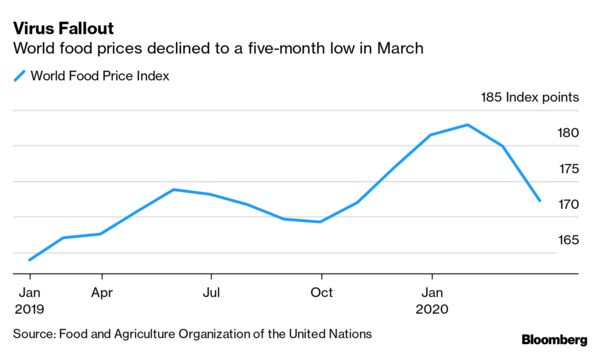Africa may be two to three weeks away from the height of a coronavirus outbreak, but its impact is already wreaking havoc on the production and movement of goods and raw materials in, out and around the continent.
To limit the spread of the virus and ease the burden on already fragile health-care systems, governments have acted swiftly on restrictions, with 31 of the region’s 54 countries imposing full border closures, according to the Addis Ababa-based African Centres for Disease Control.
The precaution has made it difficult for key exports that countries rely on to generate income to reach their destinations. In landlocked Zambia — the continent’s second-biggest copper producer — companies that usually truck output to South Africa’s port of Durban for shipment are having to find alternate routes after South Africa scaled down operations at bulk terminals.
In Kenya, the largest exporter of flowers to Europe, growers are destroying about 50 tons of fresh blooms daily due to supply-chain disruptions.
Most of South Africa’s iconic mines, which employ more than 450,000 people and are the world’s biggest source of platinum and palladium, have been idled in a 21-day lockdown, forcing Impala Platinum, the No. 2 global producer, to notify customers and suppliers it is unable to meet contractual obligations.
The collapse in oil demand and prices will likely force companies in Nigeria, which is Africa’s biggest producer and relies on shipments for about two-thirds of government revenue, to rein in output “sooner rather than later,” industry consultant FGE said in a March report.
The region’s finance ministers say it could take at least three years for the continent to recover from the virus-driven slowdown. They’ve called for an emergency stimulus package of $100 billion and debt-servicing relief for two to three years to avert a humanitarian crisis.
There are also concerns that a scarcity of goods in countries heavily dependent on imports will increase price pressures.
But the crisis has also spurred innovation and goodwill:
Charting the Trade Turmoil

World food prices fell 4.3% in March from a month earlier, reaching a five-month low, the United Nations’ Food & Agriculture Organization said. The drop was driven by demand contractions due to the coronavirus pandemic, with vegetable-oil prices plummeting 12% and the sugar index retreating 19%.
— Reuters



